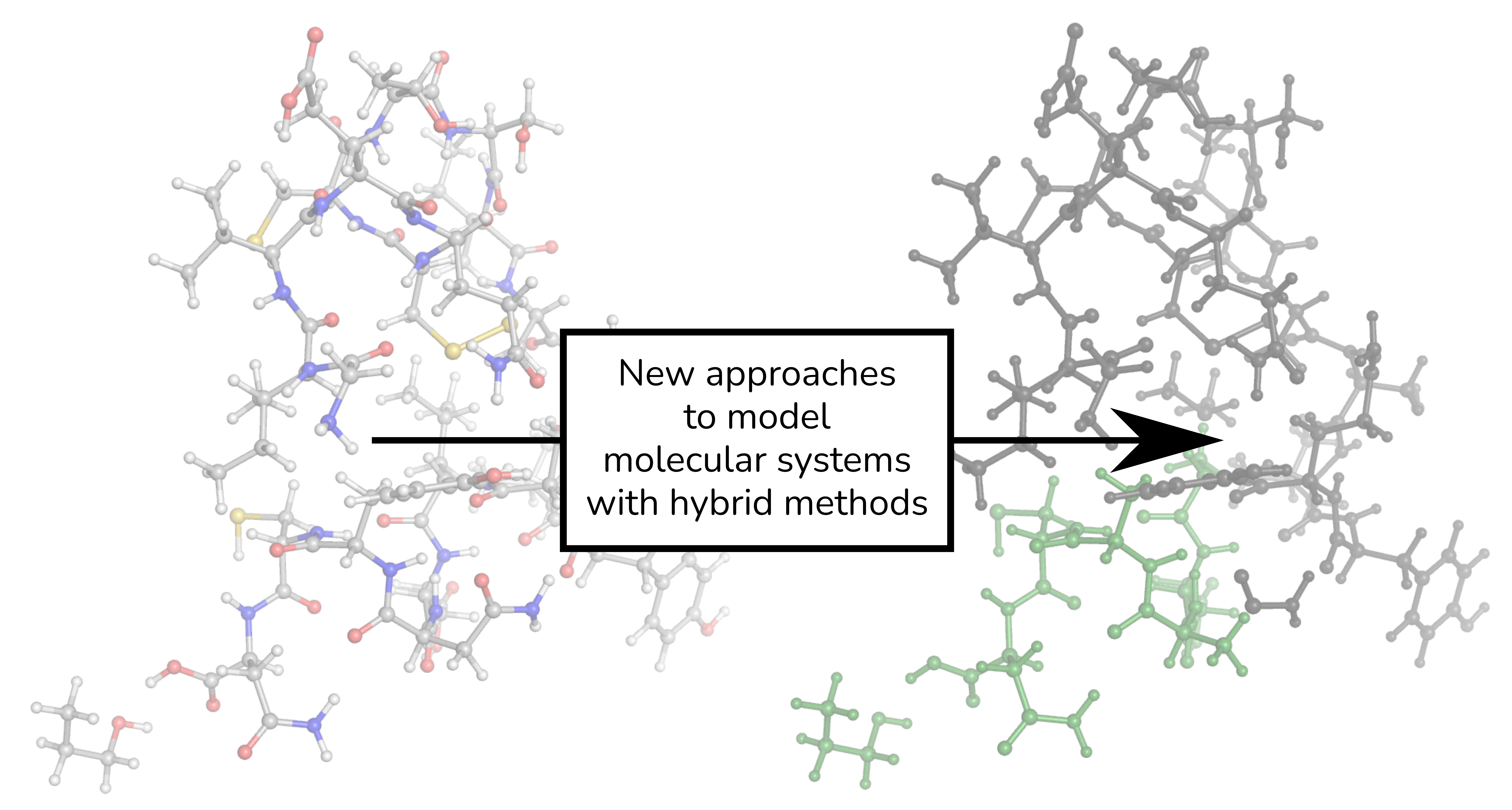Philosophy of SCINE Swoose
Swoose is a module of SCINE that enables new approaches for the computational chemistry of large molecular systems, such as proteins or DNA. All of the functionalities can be accessed most conveniently via its own command-line app or its Python bindings. The aim of Swoose is to implement fully automated protocols for the entire workflow of a QM/MM study. This includes
- the set-up of system-focused atomistic models (SFAMs) based on quantum chemical reference data where our fragmenation strategy enables such parametrizations for large systems for which reference calculations would not be feasible otherwise, and
- the set-up of quantum-classical hybrid models based on SFAM.
Technical Details
Swoose is written in C++ (C++17 standard) and can be compiled as a shared library or deployed as a command-line tool. Furthermore, the functionalities of the command-line tool can also be accessed via the Python bindings. Some tasks are trivially parallelized, e.g., reading in reference data from files or performing reference calculations for a QM region selection. Swoose relies on some external and internal (other SCINE libraries) dependencies. Details can be found in the manual.
Current Features
- Small and medium-sized molecules can be parametrized directly by carrying out reference calculations via the command-line app.
- The reference data needed for the parametrization of large systems from molecular fragments can be easily provided in a generic format or via output files from the ORCA quantum chemistry software.
- We provide an implementation of the GAFF molecular mechanics method as an alternative to our system-focused approach. Note that our automated GAFF atom-type identifier is still in beta phase and may assign some atoms incorrectly. However, atom types can be manually assigned if needed.
- An interface to the ORCA program and the SCINE modules Sparrow and xTB is available for quantum chemical calculations.
- QM/MM models can be set up (with SFAM or GAFF as MM) including an automated QM region selection based on reference data that can be automatically calculated via the command-line app.
- Single-point calculations are available (energy, gradients) with the molecular mechanics models and with QM/MM models.
- The Hessian matrix can be computed with molecular mechanics models.
- Structure optimizations and molecular dynamics simulations can be carried out with molecular mechanics models and with QM/MM models.
- Library functions are provided (currently not via app) to build molecular machine learning models from quantum chemical reference data to improve the generated SFAM molecular mechanics model by learning its deficiencies for energies and atomic forces.
- Swoose includes our fast and robust protocol for automated structure analysis and pH-consistent protonation (ASAP). This is very helpful for preparing experimental protein structures (e.g., from PDB) before running calculations.
- SFAM parameters can be exported to XML format compatible with OpenMM
Download
SCINE Swoose is distributed as an open source code. Visit our GitHub page to download it.
Future Releases
- Improvements to the implemented GAFF atom-type identifier.
Documentation
See the manual for introductory examples and a detailed documentation of the functionality of SCINE Sparrow. Documentation of the library API is available separately for the C++ library.
Support
Do not hesitate to contact the developers via scine@phys.chem.ethz.ch not only in case of any questions that arise, but also for feature suggestions and bug reports. The latter will be greatly appreciated.
References
-
Primary reference for Swoose 3.0.0:
M. Bensberg, C. Brunken, K. Csizi, M. Steiner, T. Weymuth, M. Reiher, "qcscine/swoose: Release 3.0.0 (Version 3.0.0)", Zenodo, 2025. DOI -
SFAM approach:
C. Brunken, M. Reiher, "Self-Parametrizing System-Focused Atomistic Models", J. Chem. Theory Comput., 2020, 16, 1646. DOI -
QM/SFAM approach:
C. Brunken, M. Reiher, "Automated Construction of Quantum-Classical Hybrid Models", J. Chem. Theory Comput., 2021, 17, 3797. DOI -
ASAP approach:
K.-S. Csizi, M. Reiher, "Automated preparation of nanoscopic structures: Graph-based sequence analysis, mismatch detection, and pH-consistent protonation with uncertainty estimates", J. Comput. Chem., 2024, 45, 761. DOI
